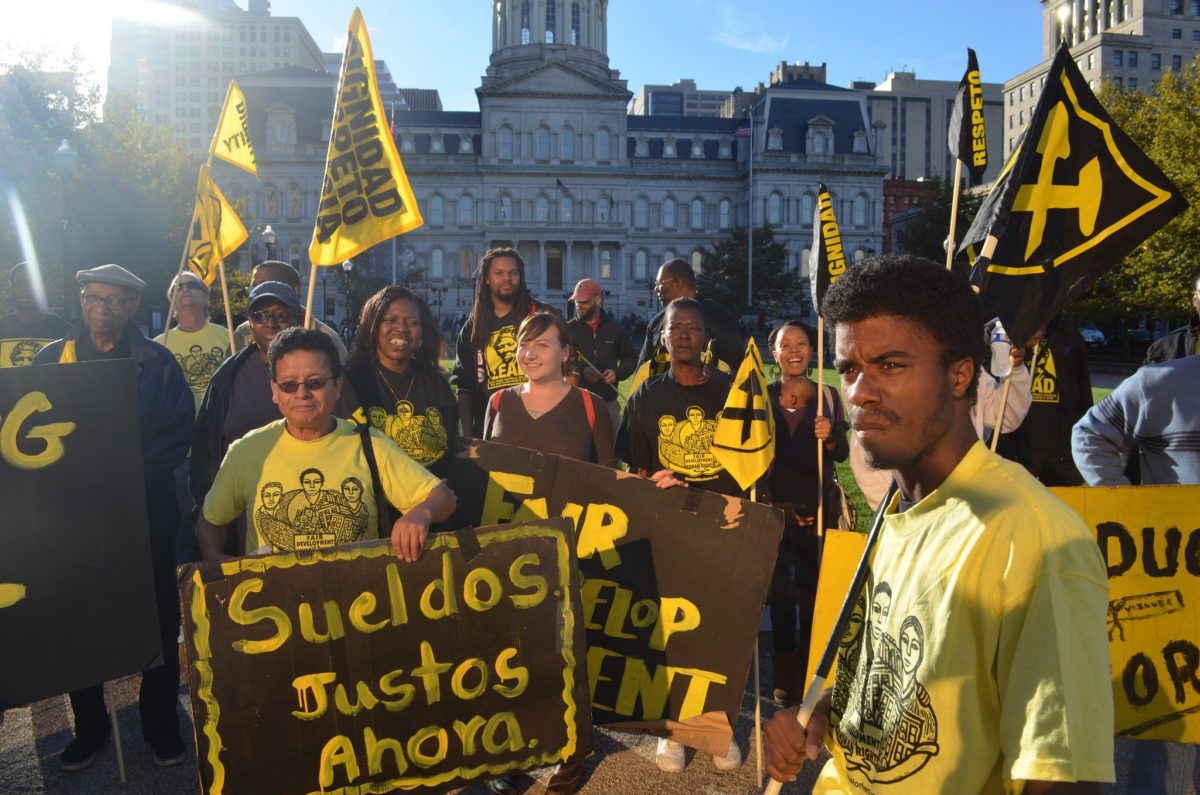Why We Need a New Social Contract for the New Economy

In recent months, editorial pages and blogs have been full of discussions on the future of work in an economy that is increasingly insecure for workers. The following piece, posted by NESRI’s Ben Palmquist at Medium.com, brings a human rights perspective to the conversation.

Photo: United Workers.
We are living through tremendous upheavals in the nature of work, and our social policies aren’t keeping up. For decades, full-time employment was the standard model of work. But today, low-wage and highly paid workers alike are increasingly finding themselves working as temps, freelancers, contractors and in other loose contractual relationships. While many point to technology as the driving force, the reality is the entire economy has been restructured. From warehouse workers to Uber drivers and receptionists to graphic designers, contingent work, for many, is becoming the new norm.
This trend, while assisted by new technologies, is driven by companies’ quest to maximize their profits at the expense of workers. By contracting “independent” workers instead of employing them, companies at the top of contracting chains are sidestepping their legal requirements to provide workers with needed benefits, including workers’ compensation, health insurance, unemployment insurance, retirement plans and other social protections, that have historically been tied to employment. In doing so, they are shifting the cost of health care, parenthood, economic slowdowns and other financial shocks to workers and the public, and pocketing the money they save.
At the same time, this outsourcing makes workers, especially low-wage and immigrant workers, ever more precarious, preventing them from standing up against dangerous conditions, wage theft, erratic scheduling, sexual harassment and interference in worker organizing. The decades-long social contract with American workers, already a patchwork with gaping holes, is being torn completely apart.
Both labor and business leaders recognize that because the nature of work is changing so rapidly, the time to forge a new social contract is now. But while everyone agrees that social programs must be more flexible and portable, we face divergent policy pathways that would have wildly different effects on workers’ lives.
Business interests are proposing a noxious response to the changing landscape: privatizing public benefits and protections and giving employers “safe harbor” (in other words, impunity) from both government regulation and worker litigation. How would this play out? We need only to look at workers’ comp, where this is already happening. In a new trend pushed by corporate lobbyists, states are beginning to allow employers to “opt out” of workers’ compensation by offering their own private plans, but are shielding these employers from litigation and any other meaningful form of accountability. ProPublica and NPR compared these private plans with state workers’ comp plans and found that the private plans “almost universally have lower benefits, more restrictions and virtually no independent oversight.”
The new economy demands a new formula: health care and social insurance must be provided as universal public goods. It is morally repugnant to deny anyone the fundamental things they need to live and work with dignity, but employment-based benefits and precarious work do just that. In response to this growing crisis, social insurance must be decoupled from employment, provided to all and financed through equitable taxation. This is how we fund our fire departments, and it should be how we fund health care and social insurance too.
At the same time, employers cannot be allowed to dodge their responsibility to workers’ rights in the workplace through these loose contingent arrangements. Worker-led accountability models — from unions to workers centers to revolutionary new models of accountability in supply chains — are essential to ensure that the most vulnerable workers are never left behind. Policy and practice must support these worker-led solutions. Government must do its part too, using public budgets to assess human needs and equitably raise taxes to adequately fund programs, including workplace monitoring and enforcement, that ensure all human needs are met and everyone’s rights are fulfilled.
